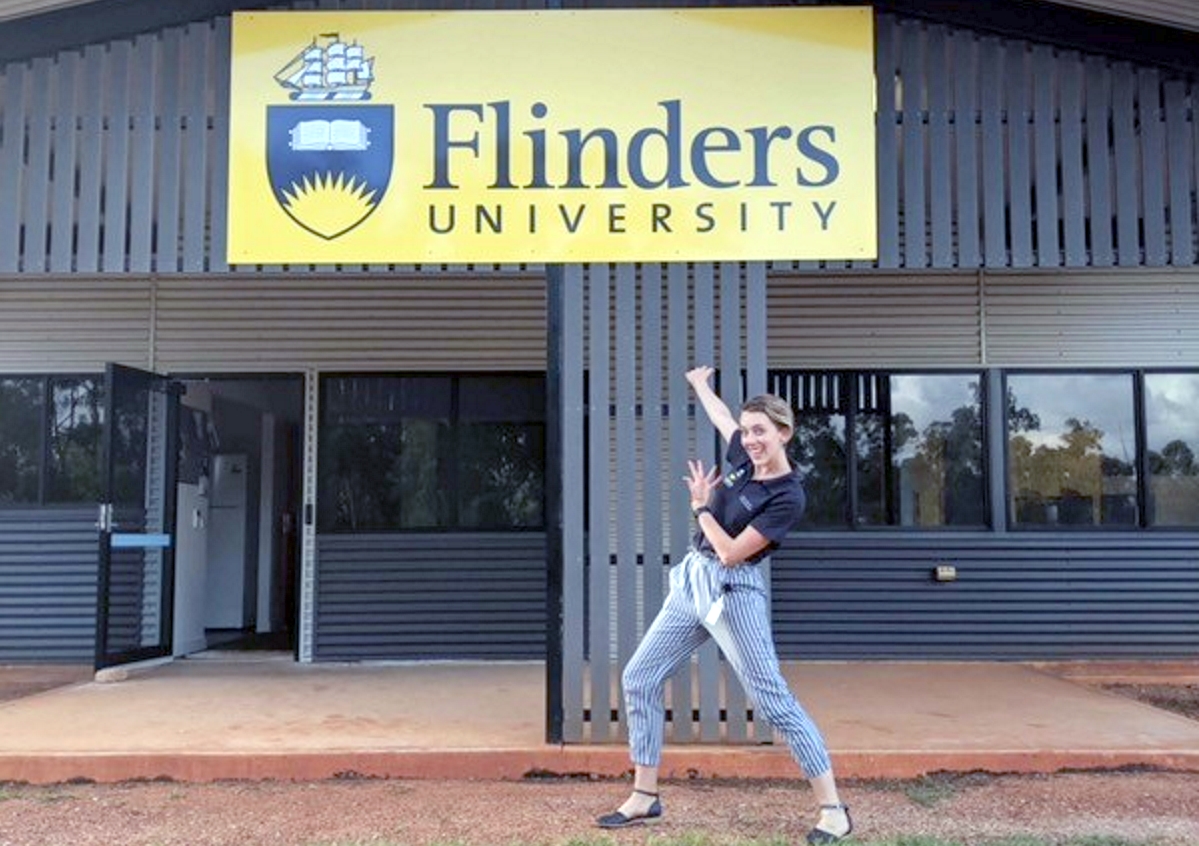
Supported by the Flinders NT placement team, Nutrition and Dietetics student from Flinders University, Ellen Wynn, completed placements at the Top End Renal Service in Darwin and the Gove District Hospital in Nhulunbuy.
Grateful for the opportunity to increase her knowledge and understanding of Aboriginal culture and health, Ellen talks about her unforgettable experience in the Top End.
The original version of this story appeared in the spring 2019 edition of the CRANAplus Magazine.
Embracing cultural differences
CRANAplus Undergraduate Student Remote Placement Scholarship recipient Ellen Wynn recounts experiences of her time spent in Nhulunbuy and Darwin.
From April to July, 2019 I completed two Nutrition and Dietetics placements within Top End Health Service.
In Darwin I developed, piloted and evaluated story-based pictorial resources for Aboriginal patients suffering from diabetes and chronic kidney disease to increase understanding of the conditions and how they relate to the person reading the story. The resources were very successful and are now being used in various remote communities across the Northern Territory and some areas of Queensland by Nutritionists and Dietitians.
I learned a lot on this placement, particularly about cultural and linguistic barriers to health promotion for Aboriginal people. I shared some unforgettable experiences including bush tucker cook-ups and reciprocal learning as well as visiting people in their communities and learning about their culture and history.
One of my favourite parts of this placement was being able to sit with an Aboriginal person and have a yarn. This was where I learned the biggest lessons and was able to understand and appreciate the differences between cultures.
Using this information, I was able to build rapport with patients and find solutions to difficult problems that considered culture and history and were better received by patients. I believe these skills will help me immensely in the future and honestly could not even begin to explain how grateful I am to have had this opportunity.
In Nhulunbuy I conducted a Gap Analysis of the Gove District Hospital Foodservice. I was very fortunate to be able to work from the Flinders NT Building. The staff at Flinders NT went above and beyond to support me both academically and socially and I am particularly grateful for Margot Wall for all her support, wise words and daily chats in the tea-room.
My project was challenging and I learned a lot, particularly around socio-economic barriers to health. I learned how to communicate and work with stakeholders in culturally appropriate ways and I was given incredible opportunity to learn about traditional art, language, history and bush medicine in my spare time. The communities were very welcoming and really filled me with a sense of belonging.
Coming into this environment from an urban city however was quite overwhelming. I was suddenly surrounded by socio-economic determinants of health that I had only ever read about in textbooks. I was overwhelmed by the gaps in health outcomes between Aboriginal and Non-Aboriginal Australians and was shocked to see first-hand the effects of food insecurity on people living in remote areas.
I now have a great understanding of health outcomes in remote Australia and how to differ my practice to work around socio-economic barriers to health. I also experienced social and professional isolation and was glad to have been provided with CRANAplus resources which gave me an understanding of how to manage these feelings and seek support where required.
I am grateful for the opportunity to learn and understand why the health gap between Aboriginal and non-Aboriginal Australia is so great. I feel inspired and motivated to continue my remote health journey and hope to gain employment in remote health and health promotion.
I hope in the future that I am able to work collaboratively with Aboriginal people and other health workers to improve cultural competency of health professionals and find ways to address the socio-economic barriers to health that I’ve now seen first-hand. Ellen’s Scholarship was sponsored by Zeitz Enterprises and CRANAplus thanks them for their continued support of the health professionals of the future.

